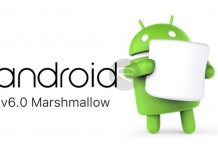
Michael Mace’s Mobile Opportunity blog has an article about the new Amazon tablet and its place in the market. It’s entitled Amazon vs. Apple? No, it’s Amazon and Apple vs. everyone else. You should read the whole thing.
Here’s an excerpt about what the new Fire tablet means to Google:
You’re not the licensee Droid is looking for. Google’s reaction to Kindle Fire speaks volumes about its goals for Android. Kindle Fire is based on Android, and will run Android applications. Android has been struggling in the tablet space, so you’d expect that Google would be delighted to have Amazon on the Android bandwagon. But you’d be wrong. Let’s look at the press release Google issued today to welcome Amazon to the Android family. Wait a minute, there is no press release. Okay, so let’s look on the Google blog. Nothing at all. Maybe a tweet from Andy Rubin? Dead silence.
The problem is that Amazon is using Android as just an OS, not using the Google-branded services and application store that Google layers on top of the OS (link). Although Google touted the openness of Android when it was first launched, the reality is that Google is using it as a Trojan horse to force its services onto hardware. What Amazon did with Android is very threatening to Google, and so you’re not likely to hear a lot of supportive words from them.
Silken dreams. Speaking of threats to Google, we should discuss Amazon’s new Silk browser. It supposedly integrates Amazon Web Services with the browser to produce a faster, more efficient browsing experience on Kindle Fire. Given the inefficiencies of web browsing over the wireless networks, this is potentially a compelling innovation that also might make it possible for future Amazon tablets to browse over 3G networks using less bandwidth than competing devices. That might lock in a structural cost advantage for Amazon’s tablets.
Kindle Fire today is a WiFi only device, but I’d be very surprised if we didn’t see a 3G version sometime in 2012.
Silk potentially gives Amazon a very powerful position (link). I can picture a couple of ways it could be used to disrupt the mobile market. First, Amazon could tie the browser to its own content services and distribute it to other hardware vendors. Basically, it could try to make Silk the content layer on Android that Google wants to be. This could be a good business move for Amazon, since it’s not making money from the hardware anyway.
Google would hate this passionately, but with the company already under antitrust scrutiny, it would have to respond very carefully.
Amazon’s other play could be to expand Silk into an enhanced platform for mobile web apps. I’ve been waiting for someone to make web apps work properly on mobile, and many smart people have been getting more and more depressed about the lack of leadership in mobile web APIs (link). Amazon has the expertise and the incentive to fill that gap. The question is whether it wants to. I think it should, I hope it will. If it does, Silk could become the platform for the next great generation of applications, giving Amazon enormous power in the computing market.
This will be a fun space to watch. Apple and Google will both feel pressure to respond to Silk to prevent Amazon from getting a decisive lead in mobile web apps. Maybe just the threat of Silk will be enough to finally drive some innovation in the mobile web platform.
I may be indulging in wishful thinking, but there’s a possibility that ten years from now we’ll look back on Silk as the single most important thing in today’s announcement.
Or not. It depends on what Amazon’s agenda is, and they’re not telling.

































Meh. Anything Amazon puts on the thing, we’ll be able to circumvent soon by rooting it. And for $199? It’ll be worth the money once I erase it and rebuild it.
Of course, an Amazon tablet…attached to an amazon prime account? with access to a store full of content? Sounds pretty Apple. And for a third the price.